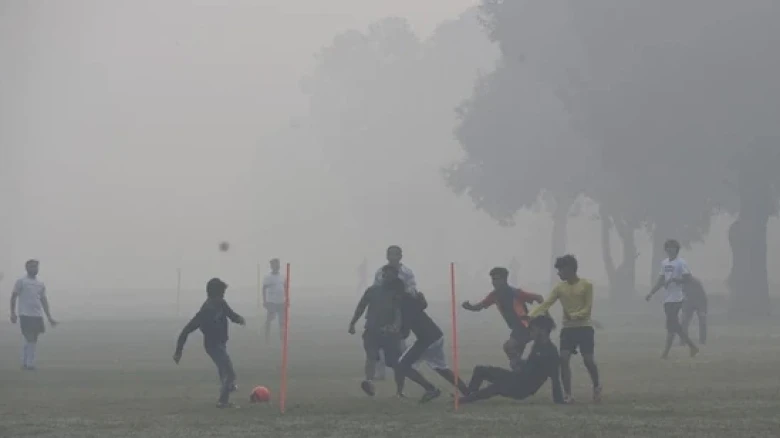North East

More than 100 healthy kids between the ages of 9 and 11 who lived in the Sacramento region and had the Environmental Protection Agency record pollution near their homes had blood samples analysed.
mso-themecolor:text1">
mso-themecolor:text1">
mso-themecolor:text1">Digital Desk: Children's exposure to pollution has
negative repercussions, according to recent studies. The research was released
in the New Directions for Child and Adolescent Research journal. Blood tests
reveal that children who have been exposed to higher levels of air pollution
have elevated levels of inflammatory markers, such as interleukin 6. According
to the study, children's cardiac autonomic control, which affects how quickly
and forcefully the heart pumps, was found to be negatively correlated with
increased air pollution levels.
mso-themecolor:text1">
color:black;mso-themecolor:text1">More than 100 healthy kids between the ages
of 9 and 11 who lived in the Sacramento region and had the Environmental
Protection Agency record pollution near their homes had blood samples analysed.
Anna M. Parenteau, a doctorate candidate, and Camelia E. Hostinar, an associate
professor, both from the UC Davis Department of Psychology, are the authors of
the study. The project was completed at UC Davis.
mso-themecolor:text1">These results are significant because, according to
researchers, exposure to pollutants from wildfires has been linked to a number
of detrimental health outcomes in children, who have smaller bodies and organ
systems than adults, including asthma and decreased lung function as well as
neurodevelopmental outcomes like autism, attention deficit hyperactivity
disorder, and deficits in learning and memory.
mso-themecolor:text1">
mso-themecolor:text1">Researchers discovered that the children's blood had
indicators of systemic inflammation when they examined data on fine particulate
matter (PM2.5), or the small particles that can enter the lungs and travel to
the bloodstream. In addition, weaker cardiac autonomic regulation measured by
an ECG was connected to PM2.5, which is defined by the EPA as particulate
matter measuring 2.5 micrometres or smaller. Researchers specifically examined
EPA data files, which contain daily summary data on air quality from every
outdoor monitor in the US.
mso-themecolor:text1">
mso-themecolor:text1">
mso-themecolor:text1">Inflammation indicators in the blood were detected in a total of 27 of the
children under study following severe fires when their neighbourhoods saw
significant amounts of PM2.5 in the air. The Mendocino Complex Fire in 2018,
which was active around 100 miles from the facility where blood was obtained,
was one of these periods when fires were raging. The results were consistent
with those of an earlier study in which UC Davis researchers took the blood of
juvenile primates following severe wildfires.
mso-themecolor:text1">
mso-themecolor:text1">
mso-themecolor:text1">"This study further highlights the direct
repercussions of exposure to air pollution, which may increase risk of future
disease, by investigating daily and monthly amounts of particulate matter in
relation to children's inflammation and autonomic physiology," Parenteau
said. Parenteau continued: "It is crucial to comprehend the effects of
environmental toxins like air pollution on children's physiology as climate
change continues to damage children and families."
mso-themecolor:text1">
Researchers found that there is a strong correlation between ambient air
pollution and allergy sensitization in children, respiratory symptoms, and
cellular and ultrastructural changes to their lungs and airways.
color:black;mso-themecolor:text1">
mso-themecolor:text1">Children may be particularly vulnerable to the impacts of
air pollution, according to research, given that they consume more pollutants
than adults do and have larger lung surfaces in relation to their body weight.
mso-themecolor:text1">
Researchers found that ongoing developmental
research on environmental toxins can raise awareness about the consequences of
air pollution and provide information for policy changes that might improve
population health over the long term
color:black;mso-themecolor:text1">.
text1">
Leave A Comment